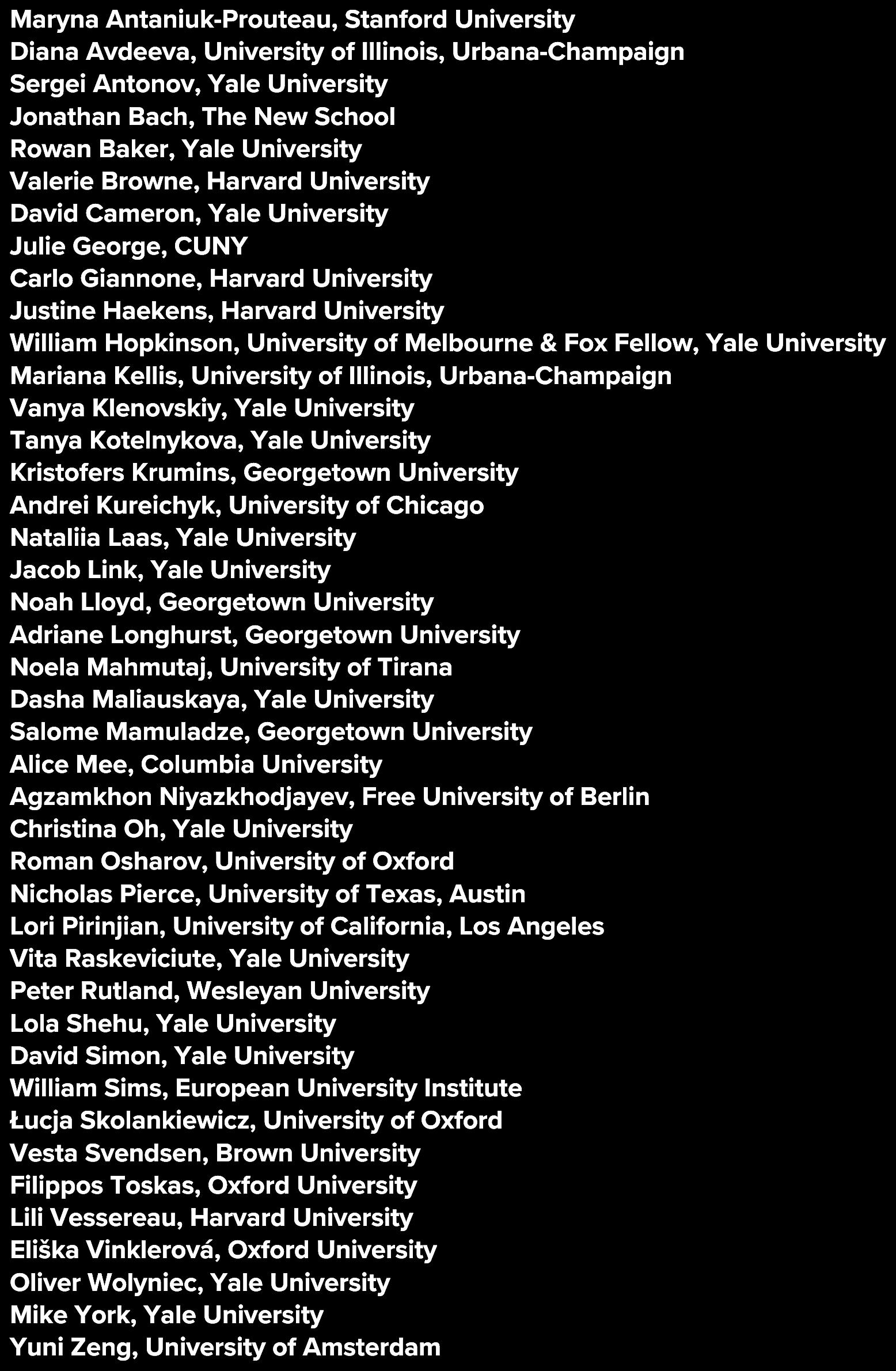6TH ANNUAL GRADUATE STUDENT CONFERENCE
YALE EUROPEAN & EURASIAN STUDIES
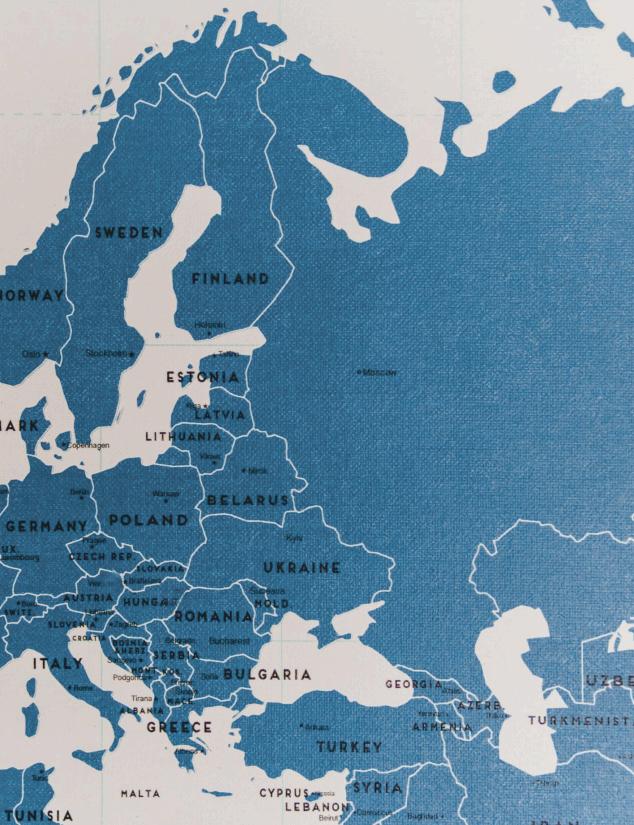




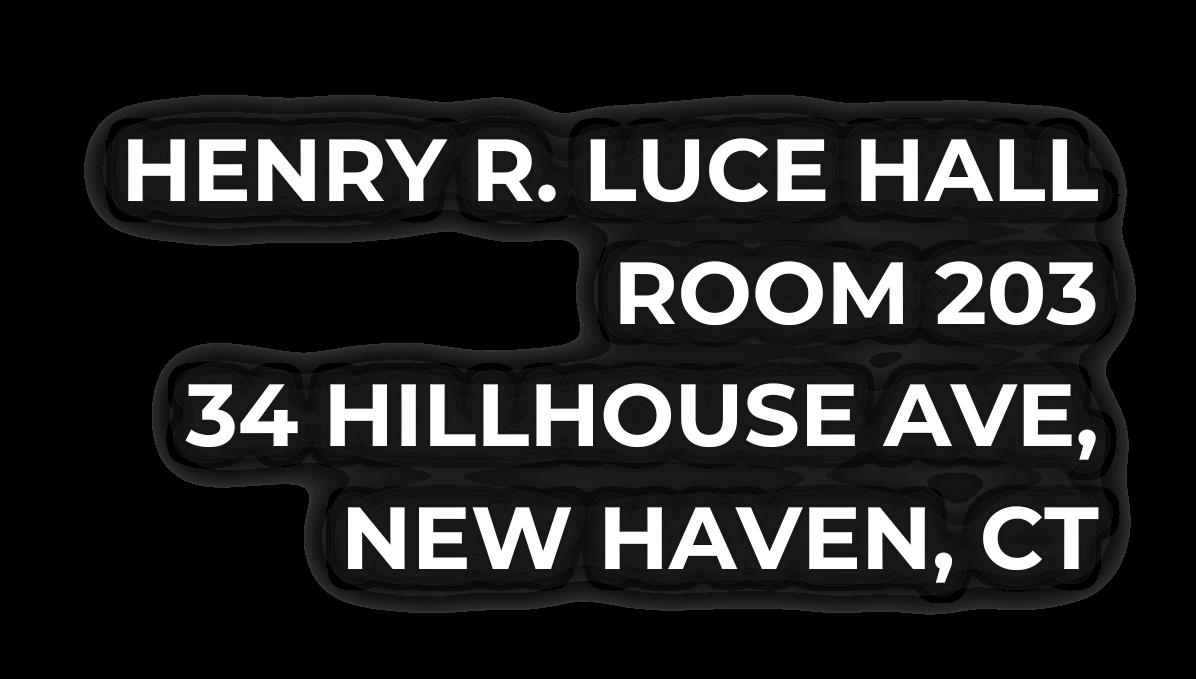
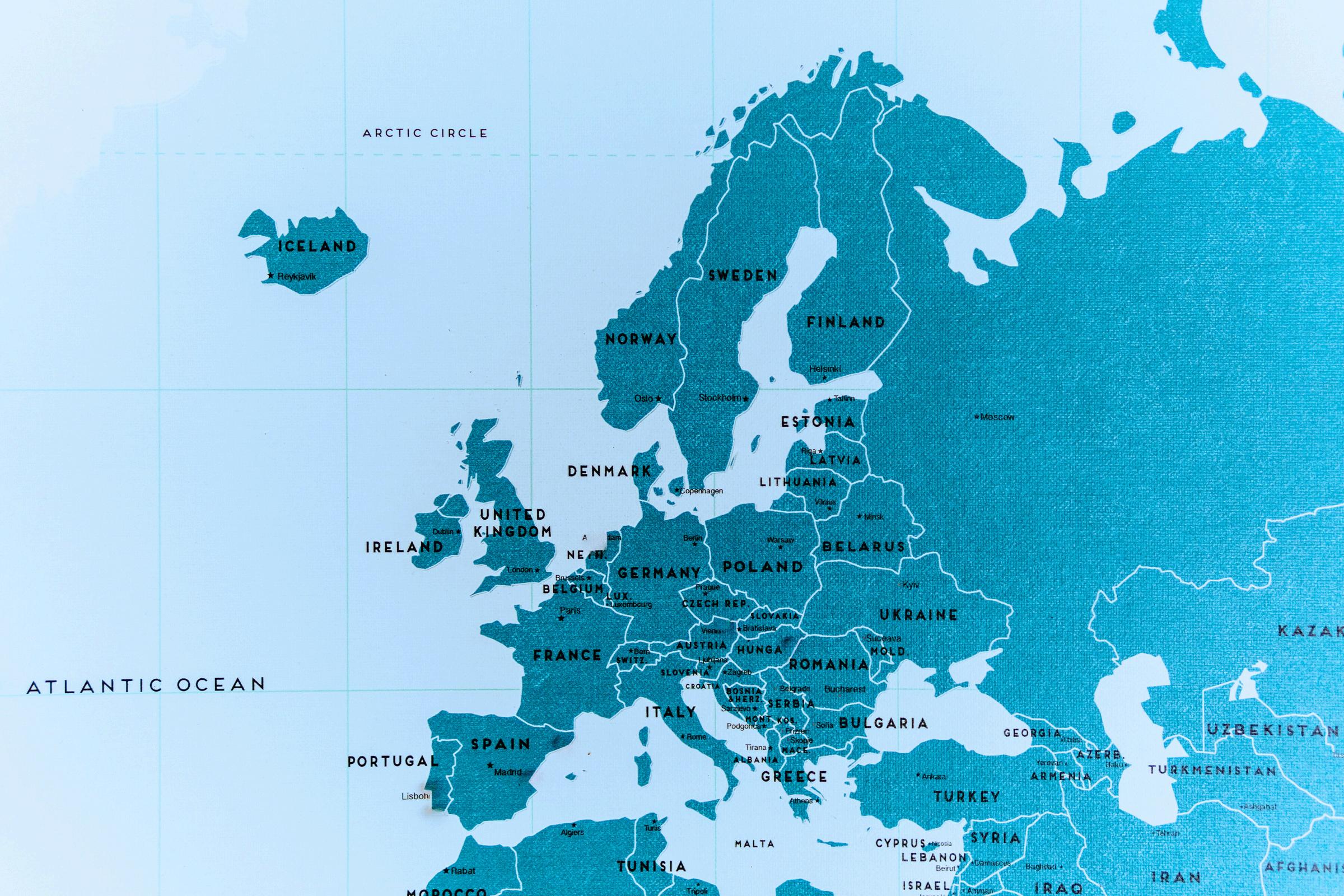

CommitteeChair:VitaRaskeviciute,YaleUniversity
TanyaKotelnykova,YaleUniversity
JacobLink,YaleUniversity
DashaMaliauskaya,YaleUniversity
OliverWolyniec,YaleUniversity
LolaShehu,YaleUniversity
LydiaSmith,YaleUniversity
ChristinaOh,YaleUniversity
MikeYork,YaleUniversity
ChristinaAndriotis,YaleUniversity
StaffandStudentsupportoftheESC
The planning committee is formed from students of the Yale European and Russian Studies MA Program, and the staff of the European Studies Council of the Yale MacMillan Center












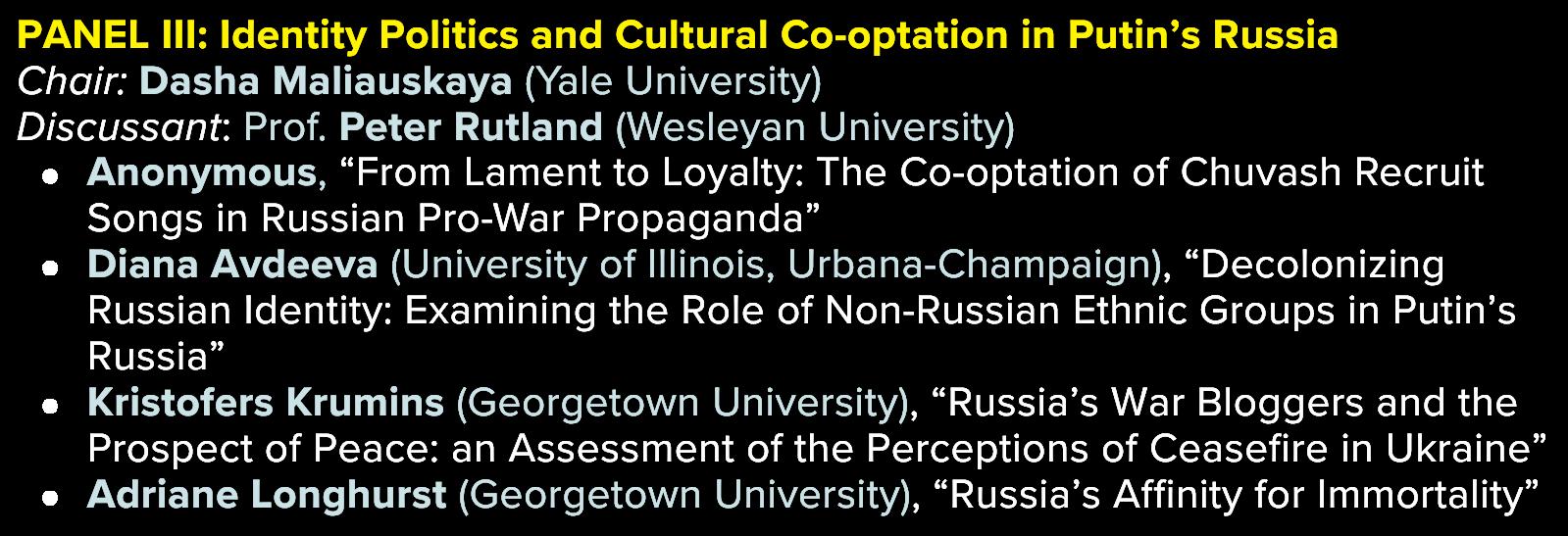








WEDNESDAY





















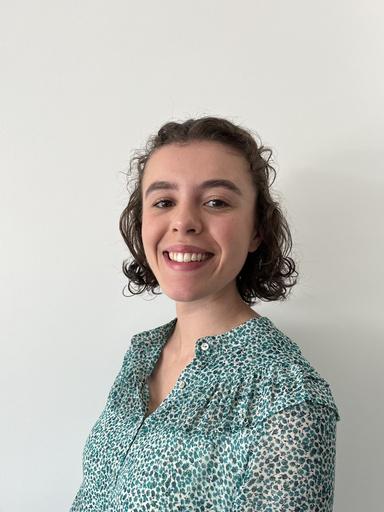
PresidentVolodymyrZelenskyisdailyspeechestothenationbetween24February2022and23February2024Inthe secondsection,IexaminecourtcasesagainstcollaboratorsinthesameperiodMycourtcaseanalysisisbasedona datasetofoneintenoftheverdictsdeliveredinthistimeframe,equatingto130cases,whichwereselectedateven intervals Iarguethatnationalbelonginghascometobepredicatedlargelyonunwaveringloyaltytothenation Moreover, Ihighlightthedetachmentofthenotionofcollaboration cooperationwithenemyforces, arguingthat collaboratorsarepositionedbyUkrainianauthoritiesasanenemyintheirownright Assuch, Isuggestthatgreater terminologicalnuancemaybeusefultopolicymakers,lawenforcementandthepublicalike
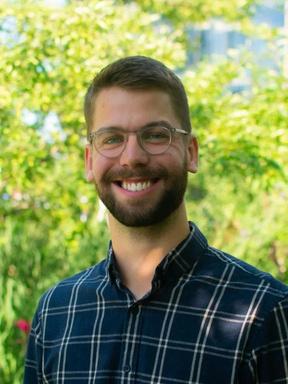
OLIVER WOLYNIEC
Oliver Wolyniec is a current M A student in the European and Russian Studies program at Yale He grew up in Minnesota and earned his B.A. in international relations and Russian from Carleton College in 2019. In his junior year, Oliver spent the spring term at Moscow State University on a study abroad program After graduation, he spent several months studying Russian in Nizhny Novgorod through the Critical Language Scholarship (CLS) program before joining the Peace Corps in Montenegro as an English language teacher His time in the Balkans was cut short by the onset of the coronavirus pandemic in March 2020 At Yale, Oliver is focusing on the role of civil society in conflict prevention and peacebuilding efforts in Russia, East Europe, and Eurasia He is especially interested in the ongoing war in Ukraine, the Nagorno-Karabakh conflict, and resurgent ethnic nationalism in the Balkans

DAVID SIMON
David J Simon is the Assistant Dean for Graduate Education as well as a Senior Lecturer in Global Affairs He also serves as the Director of the Genocide Studies Program at Yale University. David’s research focuses on mass atrocity prevention and post-atrocity recovery, with a particular focus on cases of mass atrocity in Africa, including those in Rwanda and Cote d’Ivoire He is co-editor of Mass Violence and Memory in the Digital Age: Memorialization Unmoored (Palgrave-MacMillan, 2020, with Eve M Zucker), and co-editor of the Handbook of Genocide Studies (Edward Elgar, forthcoming, with Leora Kahn) He helped launch the Mass Atrocities in the Digital Era initiative within the Genocide Studies Program (with Nathaniel Raymond). The initiative which recognizes that digital technology has brought about sea changes in all aspects of mass atrocity from the commission of it to the efforts to prevent it to the prospects of holding perpetrators responsible and seeks to bring experts from the fields of genocide studies, international criminal law, and internet data governance in conversation with one another to devise appropriate responses.

Roman Osharov is a DPhil Candidate at the University of Oxford’s Faculty of History, where his dissertation examines the Russian Empire's production of knowledge about Central Asia in the nineteenth century, its uses and limits. He began studying the history of the Russian Empire and Central Asia in 2019, building on some of his earlier work done while studying at King’s College London Research for his DPhil has taken him to archives and libraries across Eurasia, including Georgia, Kazakhstan, Uzbekistan and Mongolia, as well as to holdings in the United States and the United Kingdom. During his DPhil Roman has taught on the history of the Russian Empire and Soviet Union course at the Faculty of History and New College, Oxford, and held a teaching fellowship at the Ashmolean Museum of Art and Archaeology
"PolicingandEthnographyinAsianandRussianTashkent,1890-1897" ThispaperexaminestheproductionofknowledgeintheserviceoftheRussianimperialpowerbyfocusingontheroleofethnography, andparticularlycensusdata,inTashkentunderRussianrule.ItarguesthatethnographywasoneofthekeywaysfortheRussian EmpiretopenetrateCentralAsiancommunities.WhentheRussiansfirsttookoverTashkentin1865theydidnotknowhowmany peoplelivedinthecity,andwerefacedwiththeneedtocountthepeopleinthenewlyconqueredregion,inordertoholdelectionsand setupacolonialadministration.Yet,reliableinformationonthesizeofthepopulationonlybegantoemergeinthe1890s,whenNil SergeevichLykoshinbecamethefirstRussianpolicechiefandeffectivelyheadoftheAsianpartofTashkentinasweepingpolice reformthatfollowedthe‘cholerariot’ Lykoshin’sappointmentwasanindicatorthattheRussianimperialpowerwasextendingits footprintbytakingoveranareaoflocaladministrationthatsincetheconquesthadbeenleftlargelyinthehandsofCentralAsians
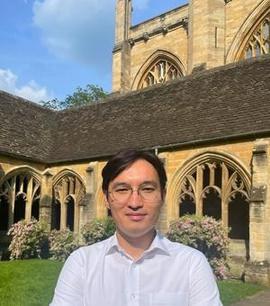

VITA RASKEVICIUTE
Vita Raskeviciute is currently pursuing an MA in European and Russian Studies at Yale University Born and raised in Lithuania, her interests converge at the crossroads of democratization and the formation of national identity within the post-Soviet landscape Vita obtained her B A in International Relations and Russian and East European Studies from the University of Pennsylvania
"BetweenNation(s)andEmpire(s):PolyethnicBorderlandPatriotisminPost-1905Vil’naGuberniya" TheeraofmasspoliticsandideologicalfermentarrivedinoneofImperialRussia’swesternmostprovincesalmostovernight FollowingTsarNicholasII’sproclamationoftheOctoberManifestoin1905 whichestablishedapopularlyelectedparliament, theDuma,promisedcertaincivilliberties,andeasingofcensorship theethnically,linguistically,andconfessionallydiverse populationofVil’naGuberniyagainedaccess, forthefirsttime, toarelativelyunrestrictedpublicsphereofpolitical organizationandvibrantprintingpress.ThisnewfoundpoliticalspacepropelledVil’nainhabitantstopubliclynegotiatetheir relationshipwiththeimperialstate,emergingideologies,andtheirneighbors.ThispaperexaminestheunfoldingoftheDuma electionsinVil’naGovernoratein1905-1912,focusingonhowpoliticalelitesinthisprovinceleveragedimperialreformsand theroomofmaneuvertheyprovidedtoarticulateandpromotecentrifugalpositionalityoftheNorthwesternborderlandwithin theEmpire.ItarguesthatculturallyPolishelitesinVil’naGovernorateutilizedDumaelectoralcampaignsandpoliticstoassert the distinctiveness and cohesion of the Northwestern provinces of Imperial Russia, constructing a mental map that differentiated these lands from both Congress Poland and the territories deemed primordially Russian (исконно
)
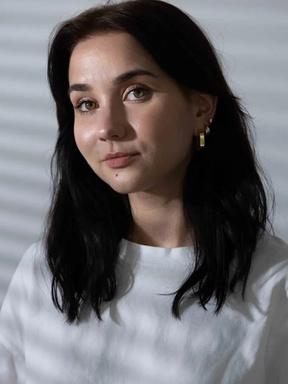

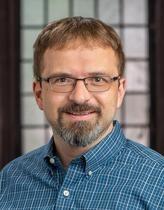
SERGEI ANTONOV
Sergei Antonov specializes in modern Russia after 1800, with particular interest in politics, culture, and society in the late imperial and early Soviet period (ca 1850-1927) His research focuses on the history of Russian law, conceived broadly to include not just legislation and legal doctrines, but ways in which legal norms and institutions impacted the daily practices of ordinary persons, rich and poor, men and women, and served to define and protect private interests, resolve (or perpetuate) interpersonal conflicts, as well as to assert (or challenge) social power and authority

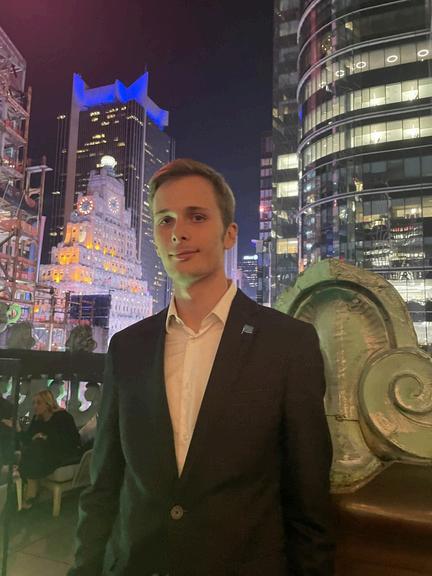
Diana Avdeeva is a graduate student in Slavic Studies at the University of Illinois at Urbana-Champaign. Originally from Moscow, Russia, her research focuses on Belarus, Ukraine, and Russia, with an emphasis on nationalism and national identity as reflected in artistic production in Russia under Putin Diana's work particularly examines the Russian opposition, the antiwar movement, and the experiences of Russia’s Indigenous peoples. She also explores creative expression in Ukraine and Belarus as a form of opposition to Russia's influence Beyond academia, Diana is a committed antiwar and decolonization activist, working with several major organizations, including those designated as terrorist and extremist by the Russian government "DecolonizingRussianIdentity:ExaminingtheRoleofNon-RussianEthnicGroupsinPutin’sRussia" Thispaperexplorestheroleofnon-RussianethnicgroupsinshapingRussianidentityunderPutin’sregime, challengingthe dominantnarrativesthatcenterethnicRussianswhilemarginalizingindigenousandminoritypopulationsTheKremlin’snationbuildingprojectpromotesahomogenizedRussianidentity, oftenerasingthecultural, linguistic, andhistoricalcontributionsof non-RussianpeoplesAtthesametime,thestateexploitsethnicminoritiesforpoliticalandmilitarypurposes,disproportionately recruitingthemintothearmedforcesandusingtheirregionsforeconomicextractionThispaperreassessesthesedynamics throughthelensofdecolonialtheory, focusingonthewaysindigenouspeoplesofRussiahaveresistedPutin’sregimeandthe full-scaleinvasionofUkrainein2022 Throughactivism, anti-warmovements, culturalrevival, andtransnationalsolidarity, variousindigenouscommunitiesinRussiachallengestate-imposednarrativesandreclaimtheiragency. Byincorporatingthese es, thisresearchhighlightsactsofdefianceagainstRussianimperialismandpresentsalternativevisionsofRussian yondthestate’scontrol.Understandingtheseformsofresistanceiscrucialfordeconstructingimperialnarrativesand moreinclusiveanddecolonizeddiscourseonRussia’sfuture.
KRISTOFERS KRUMINS
Kristofers Krumins, originally from Riga, completed his undergraduate degree in politics and government at Sciences Po, while also spending his last year on exchange at Columbia University Some of his academic interests include politics of emotion, identity, and disinformation, especially focusing on events in the Baltics and Ukraine Despite his studies in the US, Kristofers remains tightly connected with Latvia and has pursued many opportunities there, including interning at the NATO Strategic Communications Centre of Excellence in Riga, the Ministry of Foreign Affairs, and serving as the UN Youth Delegate of Latvia in 2024
"Russia’sWarBloggersandtheProspectofPeace:anAssessmentofthePerceptionsofCeasefireinUkraine" Russia’swarbloggershavebeenfollowingcloselyandcommentingontheongoingeventsatthefrontlinessincetheearly monthsof2022(Gerardetal,2024) Withtheonsetofpotentialpeacenegotiationsandastoptothehostilities,thisstudylooks atthemoodamongthetenmostreadRussianTelegramwarbloggingchannelsandassessesthetrendsintheblogospherein late2024andatthebeginningof2025.Theresearchpaperanalyzesanoriginaldatasampleanddevelopsacodebooktofilter outspecificemotionalresponsestotheongoingtacticalsituationonthefrontaswellaseventsaffectingthediplomaticrelations betweenRussiaanditsperceivedadversaries. Importantly, thepaperaddressesagapinmeasuringthepublicsentimentin RussiatowardsitswarinUkrainebyassessingthepopularityandpublicreactionstothevariouspostssharedbyRussia’swar bloggers.

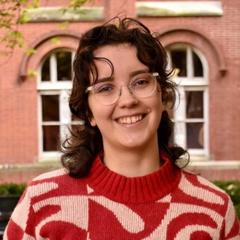
ADRIANE LONGHURST
Adriane is an MA candidate at Georgetown University with CERES After studying both Environmental Biology and Russian in her undergraduate degree, her research concerns the present-day repercussions of the Soviet legacy on science and the region's current environmental, ecological, and bioethical issues, as informed by history, politics, culture and war across Russia, Eastern Europe and Central Asia. "Russia'sAffinityforImmortality"
InFebruary2024,Putinestablishedanewnationalprojectfocusedontransformingthelongevityofitscitizens,aptlytitled “NewHealthPreservationTechnologies. ”Oneoftheproject'smoreeclecticaimsisextendingRussiancitizens’lifespans throughthedevelopmentofneurotechnologiesandcellularregeneration Although,atfirstglance,headlinesaboutPutin’s questforimmortalitymightseemtobeafleetingcuriosityofhisregimeanddesireforpower,Russiahashadaunique obsessionwithimmortalitysincetheearly20thcenturyIconnectRussia’shistoricalrelationshipwiththepursuitofimmortality tothepresent-dayrealityofitsdemographicsandmortalityratestodayRussia’sscientificobsessionwithimmortalitybegana centuryagointhefaceofadevastatingdemographiccrisis,withmillionsdyinginthefewshortyearsofthecivilwarandthe Bolshevikrevolution Today,asRussia’sbirthratesandadultmortalityspiral,weseeasimilardesiretoextendhumanlife I investigatenotionsofimmortalityandtheirconnectiontonationalism,withattentiontoparallelsbetweenthe“SovietMan”and whatitmeanstobe“Russian”ThewayscienceisexploitedtocategorisewhoisandisnotRussianispertinentinthecontext ofRussia’sinvasionofUkraine
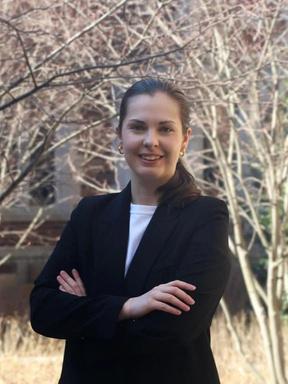

PANEL IV: SOCIAL TRANSFORMATION IN THE SOUTH CAUCASUS
SALOME MAMULADZE
Salome Mamuladze is a master's student in Eurasian, Russian, and East European Studies at Georgetown University’s Walsh School of Foreign Service, where she also serves as a Graduate Fellow at CERES Originally from Tbilisi, Georgia, she earned a B.S. in Foreign Service from Georgetown University in Qatar, majoring in Culture and Politics with a minor in Government. Salome's undergraduate honors thesis explored modern Georgian nationalism and protest culture Her current research interests focus on security dynamics and nationalism in the South Caucasus and the broader Black Sea region
"ManagingDisplacement:APolicyAnalysisofGeorgia’sIDPCrisis" GeorgiahasfacedongoingchallengeswithinternaldisplacementduetoconflictsinAbkhaziaandSouthOssetiasincetheearly 1990sAsof2023,approximately311,000internallydisplacedpersons(IDPs)remaininGeorgia,presentingsignificantsocialand economicchallengesThispaperexaminestheevolutionofGeorgia’sIDPpolicies,withaparticularfocusonhousingassistanceIt traceskeypolicydevelopmentsfromthe1990stothepresent,analyzingboththesuccessesandshortcomingsofgovernment strategies Thestudyhighlightsshiftsinapproach,fromaninitialemphasisonrepatriationtolatereffortsaimedatlong-term integration Whilerecentpolicieshaveprioritizedhousingsolutions,inconsistenciesinimplementation,forcedrelocations,and inadequateinfrastructurehavehinderedprogress Drawingonofficialannualreports,thisresearchprovidesacomprehensive overviewofGeorgia’sevolvingIDPpolicies,offeringinsightsintotheireffectivenessandthegapsthatremainByaddressingalack ofEnglish-languageresourcesonthistopic,thestudycontributestoabroaderunderstandingofGeorgia’seffortstosupportIDPs andunderscorestheneedformoresustainableandinclusivepolicysolutions
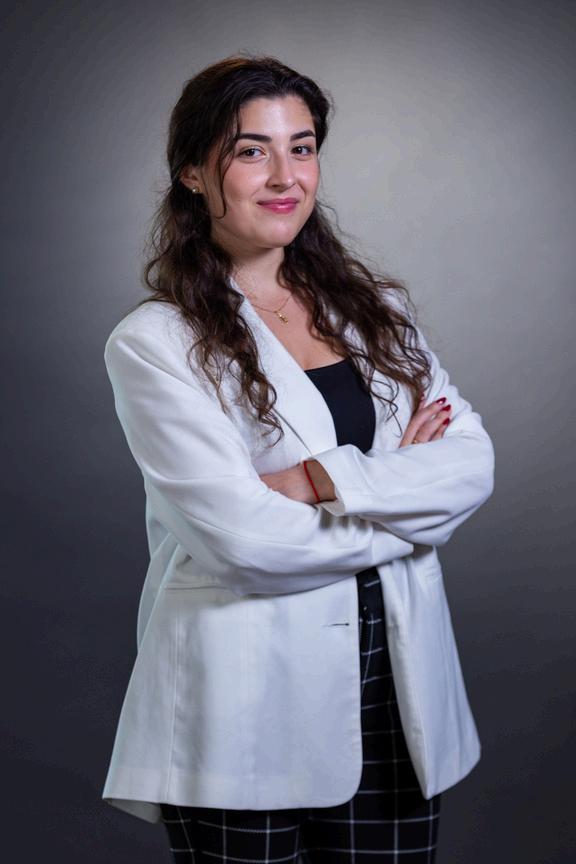


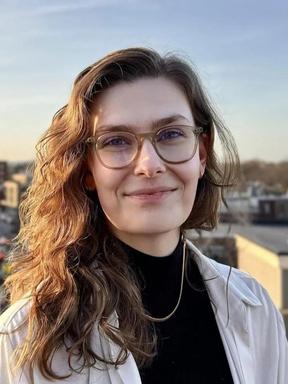
LYDIA SMITH
Lydia Smith (she/her) is a current Masters Student in the European and Russian studies program Her academic interests include the use of AI in combating disinformation, internal displacement in post-conflict zones, the South Caucasus, and the Balkans Her thesis research is on modern policies of internal displacement in Georgia and Armenia Prior to arriving at Yale, Lydia taught English at high schools in Gotse Delchev, Bulgaria and Joinville, France as part of the Fulbright and TAPIF programs. She is originally from Virginia and graduated from the University of Virginia with a degree in Foreign Affairs and minors in French and Russian literature Her undergraduate thesis research was on the efficacy and impact of COVID-19 border closures
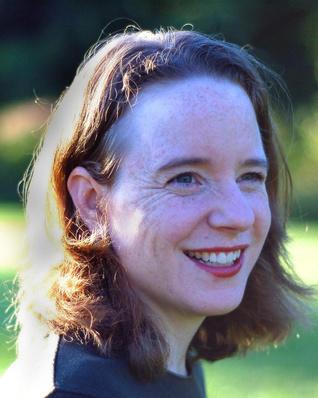
JULIE A. GEORGE
Professor George specializes in comparative politics, focusing on ethnic politics, democratization, and state building Her current research focuses on how states undergoing significant transformation and reform address ethnic minorities. Professor George has conducted research in the former Soviet Union, primarily in the Russian Federation and in Georgia, where she was funded by the Fulbright Association Professor George is the author of The Politics of Ethnic Separatism in Russia and Georgia (Palgrave Macmillan, 2009), as well as articles in Europe-Asia Studies, Post-Soviet Affairs, European Security, and Central Asian Survey She has written chapters for inclusion in The Politics of Transition in Central Asia and the Caucasus: Enduring Legacies and Emerging Challenges (Routledge, 2009) and Conflict in the Caucasus: Implications for International Legal Order (Palgrave Macmillan, forthcoming 2010).


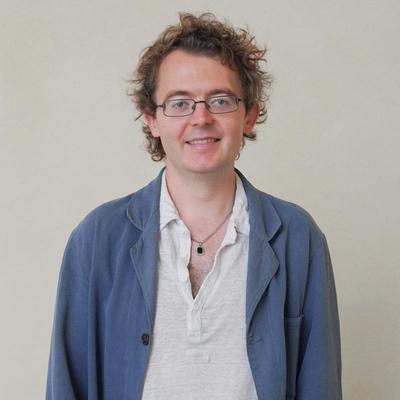
YUNI ZENG
Yuni Zeng is currently pursuing her MA degree in European Studies at University of Amsterdam, specializing in the Identity and Integration track Her research interests focus on nationalism in contemporary Europe and the intersection of musical decolonization with identity politics She explores how cultural expressions, such as music, contribute to national and transnational narratives, highlighting the complexities of identity formation and integration With 10 years of experience performing in an orchestra, she brings a unique practical perspective to her academic work, connecting her deep understanding of music to her research on identity. By bridging historical legacies with modern sociopolitical transformations, she seeks to contribute to a deeper understanding of identity within the European context
"DecolonizingCzechMusic: Má vlastandtheStruggleforCulturalAutonomyfrom HabsburgRuletoSovietInfluence"
Duringthe19thcentury,CzechcomposersfacedtheculturalhegemonyoftheAustro-HungarianEmpire,whereGermanmusicdominated artisticinstitutionsandintellectualdiscourse Inthiscontext,BedřichSmetana’sMá vlastemergedasapowerfulmusicalstatementofCzech nationalidentity,challengingtheGermanictraditionsthathadshapedCentralEuropeanmusic Thisarticlechallengesthebinaryofcolonizervs colonizedbyapplyingpostcolonialandtransnationaltheoriestoCzechmusicalnationalism RatherthanviewingMá vlastasamerereaction againstGermanculturalcolonization,thisstudyexaminesitscosmopolitanentanglements fromFranzLiszt’ssymphonicpoemmodeltothe roleofHabsburgculturalpoliciesinfosteringCzechidentity ThisstudyinvestigateshowCzechcomposersaccumulatedmusicallegitimacyand institutionalinfluencetoassertadistinctnationalidentitythroughPierreBourdieu’sconceptofculturalcapital Thisarticlealsoexamineshow Má vlasttranscendeditsoriginalnationalistcontext,becomingasymbolofCzechresistanceunderNazioccupationandapillarofpostHabsburgculturalheritage ExpandingthisperspectivetotheColdWarera,italsoexploreshowMá vlastfunctionedasasubtleassertionof CzechculturalidentityunderSovietculturaldominance,highlightingitsenduringroleinthereclamationofCzechartisticautonomyacross imperialandpost-imperialEurope
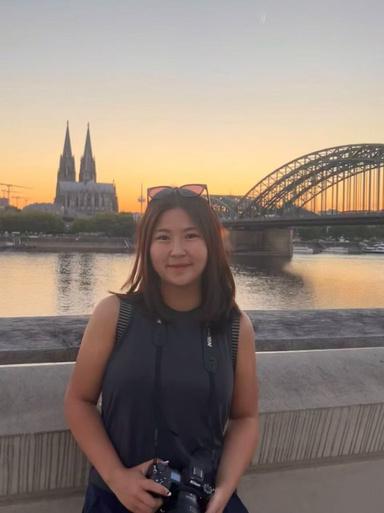


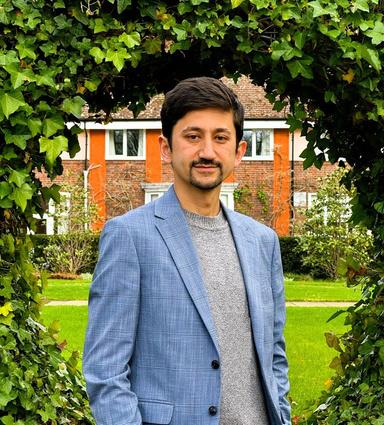
AGZAMKHON NIYAZKHODJAYEV
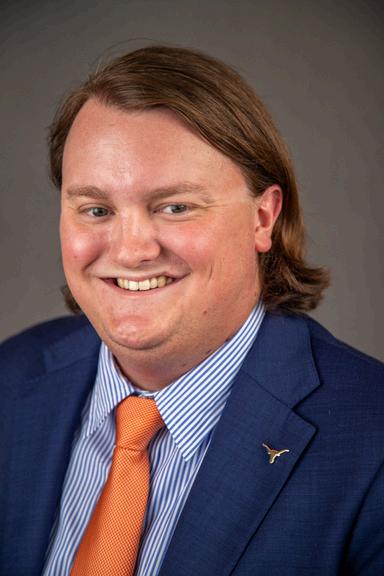
Agzamkhon Niyazkhodjayev is a Ph D candidate in Economics at Institute for East European Studies and School of Business and Economics at Freie Universität Berlin. His research primarily focuses on the economic history and development of postSoviet countries, with a particular emphasis on Central Asia Agzamkhon holds a Master of Science in Applied Economics from Westminster International University in Tashkent and has extensive working experience in the energy sector He is also a scholar of the "El-Yurt Umidi" Foundation initiated by Uzbekistan "Electricity&SocioeconomicPerformance:EvidencefromtheShortSovietCentury" ThisstudyexaminestheimpactofelectrificationoneconomicandsocialdevelopmentintheSovietUnion’snon-Russian unionrepublicsthroughoutthe20thcentury.Utilizingofficialstatisticalrecords,thispaperprovidesanovelquantitative analysisoftherelationshipbetweenelectricityproductionandkeysocioeconomicindicators, includinghumancapital, employment,andhealthcaredevelopment Toaddresspotentialendogeneityconcerns,Iemployapproaches,leveraging earlySovietelectrificationpolicies,administrativedecentralizationinstitutions,andtheethnicityofMinistriesofelectrification instruments Additionally,entropybalancingisusedtoensurecovariatebalanceinobservationaldata,improvingcausal inference Aplacebotestisimplementedtoverifythattheobservedeffectsaredrivenbyelectrificationratherthan confoundingfactorsThefindingsrevealthatelectrificationsignificantlycontributedtopublicgoodsdevelopmentinSoviet republics,withclearpath-dependenteffectsinfluencedbyhistoricalpolicydecisionsHowever,theethnicityofpolicymakers inchargeofelectrificationisinsignificantIncontrast,theethnicityofFirstSecretariesishighlysignificant,withSlavicleaders receivinggreatereconomicbenefitsandprioritizationfromthePolitburoAdditionally,resourceextractionwassystematically observedinseveralUnionrepublics,reinforcingeconomicdisparitiesbetweenregions
NICHOLAS PIERCE
Nicholas Pierce is a second-year graduate student at the Center for Russian, East European and Eurasian Studies at the University of Texas at Austin, where he also received his B A in History and Russian, East European and Eurasian Studies in 2023 His research interests include comparative history between the United States and the Soviet Union/Russia, processes and problems of modernity, comparative frontiers, the history of nomads, and the Russian language His current research is a comparative history of “high modernity” in the 1930s in Roosevelt’s USA and Stalin’s USSR "'ForcingtheGatesoftheFuture':DamsasSitesofHighModernityinRoosevelt’sUnitedStatesandStalin’s SovietUnion"
The1930ssawadecisiveturntostateactionintheUnitedStatesandSovietUnion,wherethestate,buildingonprecedents ofplanningfromWWI,mobilizedphysicalandintellectuallabortoenactfundamentalchange Usingtheframeof“high modernity”asdescribedbyJamesC.Scott,myworklayoutacomparativeanalysisofthe1930sinthesetwosupposedly opposingsystems,withthegoalofshowingthesimilaritiesandkeydifferencesofAmericanandSoviet“highmodernity”If highmodernitycanbesaidtohaveacentralsymbol,onewouldbehardpressedtopointtoanyotherthanthemassive concreteandsteeldamsthatwereconstructedacrosstheUSandUSSRinthe1930sFromtheHooverDamtotheTVA,from theDniepertotheVolga,thesestructuresliterallysubmergedthepastintheinterestsofpowergenerationandthecontrolof nature.Theyalsochangedthehumangeographyoftheseregions,displacingthepopulationswhowereoftenseenas backwardsorundeveloped Therefore, Ilookatdamsandtheirconstructionsassitesofhighmodernityinpractice, transformingthephysicalandhumanworldtobettersuitanideaofanefficient,modernfuture


PANEL VII: EUROPE'S ECONOMIC POLICY, TRADE, AND COMPETITIVENESS IN A CHANGING GLOBAL LANDSCAPE
CARLO GIANNONE
Carlo Giannone is a Master in Public Policy candidate at the Harvard Kennedy School, sponsored by BCG, Fulbright and Zegna scholarships. He works as Teaching Assistant for Economics Professor Robert Lawrence, former Economic Advisor of President Clinton, and as a Research Assistant for Professor Eric Rosenbach, former Chief of Staff of US Pentagon He is also part of the organizing team of the 2024 EU Conference, one of the most important events on Europe in the US Prior to HKS, he worked as a policy consultant at BCG in Middle East focusing on geopolitics, foreign direct investments, industrial and foreign policy as well as at FleishmanHillard in Brussels focusing on public affairs He holds a bachelor’s in economics from Bocconi University and a master’s degree in international management from the London School of Economics and Bocconi University where he also serves as an elected member of the Board of Bocconi Alumni. Carlo also currently contributes to several Italian newspapers, hosts a top-100 Italian podcast on geopolitics and economics"Finanza, Pizza e Mandolino" , and is a selected ISPI, OECD and Bocconi University Future Leader "EUTradePolicyintheEraofProtectionism:De-riskingfromUS"
TheUnitedStatesremainstheEU’slargestexportmarketie, overEUR529BnbetweenNov2023and2024, makingtransatlantictraderelations criticalforEuropeaneconomicstability. There-electionofDonaldTrumpandhisadministration'srenewedpushforprotectionistmeasures, includingtherecentlyannouncedtariffsonsteelandaluminum, haveheightenedconcernsacrosstheEUabouttradedisruptions Thispaper evaluatestheEU’sexposuretoUSprotectivemeasuresandassesseswhetherandhowtheEUcouldreduceitsrelianceontheAmericanmarket. ThispaperfirstlyanalyzestheextentofEUmemberstates' relianceonUSmarketsforbothgoodsandservicesusingtradedataThendrawing fromtheEU’slearningsinreducingdependencyonRussiangas, Iexplorewhethersimilarde-riskingeffortsarenecessaryandfeasibleinthe transatlantictradecontextThroughacombinationofdataanalysisandexpertinterviews, Ievaluatepotentialmarketsandpolicymechanismsto diversifyEUtradeandenhanceeconomicresilienceByexploringthesedimensions,thispaperaimstodemonstratewhethertheEUcanreduceits economicdependenceontheUSmarketandestablishitselfasastrongglobalplayer,regardlessoffuturepoliticalshiftsintheUS.
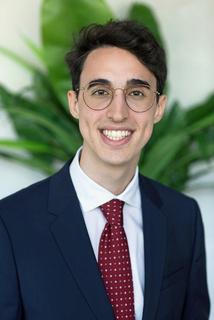
JUSTINE HAEKENS
Justine Haekens is currently pursuing her LL M degree at Harvard Law School while simultaneously working on her PhD at the KU Leuven Her dissertation focuses on the concept of market power in EU competition law, on which she has published in Belgian and European academic journals Justine is involved in the Harvard European Law Association and the Belgian Student Society at Harvard, as well as in the Case4EU Project She holds a masters degree from the KU Leuven and has studied at the University of Edinburgh as part of her degree "HowDoesCorporateWealthTranslateintoMarketPower?" CompetitionlawinEurope, asestablishedintheTreatyontheFunctioningoftheEuropeanUnion (TFEU) initsTitleVII, Chapter1, iscrucialforpreservingfairmarketconditions, protectingconsumerinterests, andpromotingeconomicefficiencybypreventing anti-competitivepracticesandensuringalevelplayingfieldforbusinessesBuildingoneconomicstudies, thisresearchaimsto understandwhetherfinancialpowershouldbeastand-alonecriterionwhenestablishingdominanceorevaluatingmergersTodo sothelinksbetweenfirmsfinancialwealthandmarketpower, aswellasitsrelevancetoEUcompetitionlaw Thispaperwill thereforeconsiderthe ‘deeppockets’ theory, whichclaimsthatwealthandresourcesareasourceofpower. Thistheoryargues thatextensivefinancialandotherresourcesgivefirmsanunfairadvantageovercompetitors, whichtheycanusetosellbelow costsasastrategytodrivecompetitorsoutofthemarket.Thistheoreticalframeworkwasdevelopedinthesecondhalfofthe20th centuryandwasrefutedrelativelyquickly Usingnewempiricaleconomicstudies, thispaperwilldeterminewhetherthelegal theoryhaseconomicrelevanceinthecurrentEuropeanmarket
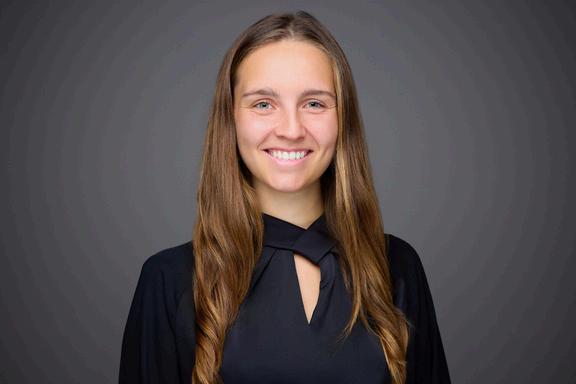
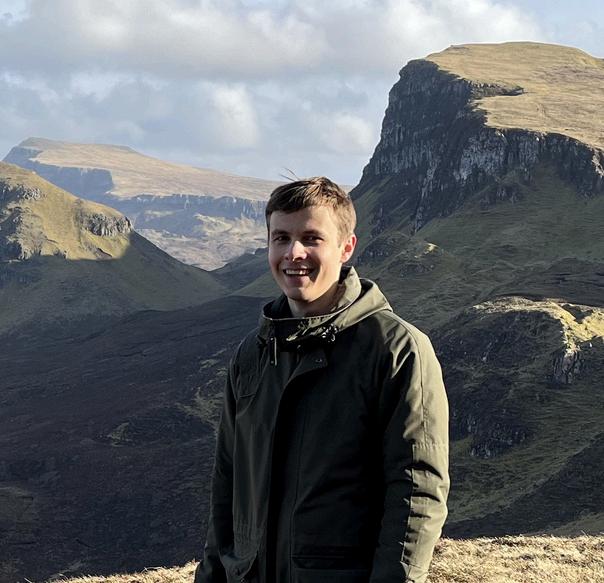

NOVSKIY
s a graduate student in the Economics department broadly interested tariff pass-through in supply chains, d platform markets In his job market paper, he is exploring welfare effects of recent protectionist tariffs that mposed on European food products. His other work is focused on incorporating modern ML methods in
ughalongtheSupplyChain:EvidencefromLiquorIndustry" tsofa2018tariffonEuropeanliquorproductsalongthesupplychainIncontrasttorecentwork,wefind attheborderisincompleteandthatmostofthepriceincidencefallsonforeignfirms Tariffeffects thedomesticconsumerbutwerefurtherabsorbedbyretailerswhodecreasedtheirmarkupsSurprisingly, fcompletepass-throughattheconcentrateddistributiontierofthesupplychainconsistentwiththeuseof s Pricewasnottheonlyresponsemechanismthataffectedconsumersasretailersalsoreducedthe ductsaffectedbythetariff PriceeffectsatthestorewerehighlyunevenacrosstheUSevenfor sestatesWeshowthatdifferencesinsupplychainstructureinducedbystatelawscouldexplainsomeof s-throughinneighboringstates
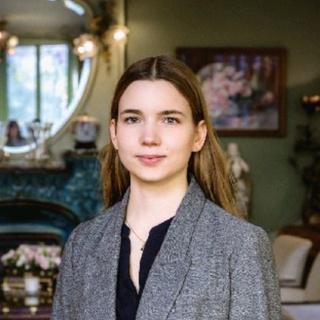
LILI VESSEREAU
Lili Vessereau is the co-chair of the European conference and a Teaching Fellow for Infrastructure finance, Public Finance, and Introduction to Microeconomics at Harvard. She is also a Research Scholar at the Center for International Development, a Research Assistant at the Mossavar-Rahmani Center for Business and Government, working respectively on green growth and debt restructuring, as well as a Master in Public Policy candidate at the Harvard Kennedy School She is the former Youth Delegate of France to the Council of Europe and a former OSCE Perspective 2030 Fellow. She previously worked for the French Government, the United Nations, and the Center for Strategic and International Studies She holds Master’s Degrees from Sciences Po Paris, La Sorbonne, and HEC Paris
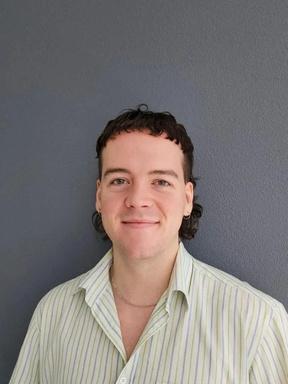

DIMENSIONS OF LEADERSHIP: CHALLENGES ON THE GLOBAL AND LOCAL STAGES
WILLIAM HOPKINSON
William Hopkinson is a PhD Candidate at the School of Social and Political Sciences at the University of Melbourne His substantive research interests include climate change politics, comparative politics, and set-theoretic methods. As a long-term climate advocate, his PhD research focuses on domestic political processes and the enabling and constraining conditions that shape climate ambition and its change over time His research aims to help scholars, policymakers, and activists better understand how to accelerate more ambitious climate action to meet international climate goals. His work centres on the domestic politics between fossil fuel and green actors over climate policy within OECD member countries In addition to his research, William also works as a teaching associate and research assistant across environmental and international politics at the University of Melbourne. William has a long-standing interest in multi-disciplinary climate approaches and is a member of a collaborative climate research project between the University of Manchester, the University of Melbourne, and the University of Toronto He holds a Master of Geography from the University of Melbourne and a Master of International Politics from KU Leuven.
"ClimateHybridity:NorwayasbothLeaderandLaggard" TomeettheParisAgreement’sgoals,statesmustincreasetheirambitiontomitigateclimatechangeandacceleratetheireffortsasrapidlyaspossible Pavingthewayforthenet-zerotransition,climateleadershipanditsvariousconceptualformshavebeenheavilydebatedbyenvironmentalscholarsYet, environmentalresearchhasdisproportionatelyfocusedonbinaryunderstandingsofleadershipandlaggardshipwhereintheselabelsformafixed historicalattributionInthisarticle,Iadvanceamoredynamicunderstandingofclimateperformancethroughacloserexaminationofdomesticclimate policiesoccurringovertimethatmaydisruptfossilfuelpath-dependenciesByfocusingonNorway,longregardedasaquintessentialleader,Idrawon originaldataandcontentanalysistoanalyseandexplainNorway’srarepositionasbothaclimateleaderandoneofEurope’slargestfossilfuelexporters Inturn,Ichallengethisleadership-laggardshipbinaryandinsteadofferamorenuancedunderstandinginwhichNorwaysimultaneouslyembodies elementsofleadershipandlaggardshipovertime.BeyondtheNorwegiancase,thishybridcomplexityjustifiesre-evaluatingcommonbinary understandingsofleader-laggardsandtheirwiderapplicationinboththeenvironmentalpoliticsliteratureandthepracticesoftheclimateregime.
NOAH LLOYD
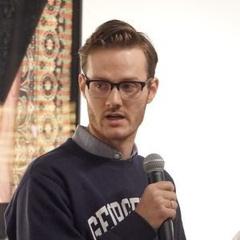
Noah Lloyd is a recent graduate of Georgetown University's Center for Eurasia, Russian, and Eastern European Studies and currently works on the South Caucasus team at the National Endowment for Democracy. Before entering his Master's program at Georgetown, he taught in public and private schools across Eastern Europe and worked as a Russian and Ukrainian translator His academic research has primarily focused on modern Ukraine, specifically issues related to separatism and democratic reform.
"TheBattleforLocalAutonomy:DecentralizationProcessesinWartimeUkraine" ThefrontlinesofUkrainerepresentnotonlyastrugglebetweenUkrainiansovereigntyandRussiandomination,orthedefense ofdemocracyagainstautocracy,butalsoacontestbetweentwocompetingmodelsofgovernancewithinUkraineitselfThis paperexaminesthecriticalrolethatdecentralizationhasplayedinUkraine’sresilienceamidRussia’sfull-scaleinvasion, highlightingthewaysinwhichempoweredlocalgovernmentshaveunderpinnedstatestabilityandwartimegovernanceThe wartimeheroismofmayorsandlocalofficialsillustrateshowself-governingcommunitieshavebecomevitalpartnersin defendingUkrainianindependence.However,martiallawandtheexigenciesofacentralizedwartimecommandstructurehave profoundlyalteredthebalanceofpowerbetweenKyivandtheregionsLocalgovernments,oncesemi-autonomousand confident,nowfacegrowingdependenceonthecentralstateSimultaneously,nationaldefenseimperativeshaveconstrained localfiscalautonomy,exacerbatingthesevereeconomicpressuresenduredbyfrontlinecommunitiesMoreover,martiallaw hascurtailedpoliticalpluralismandempoweredKyivwiththeauthoritytoredrawthecountry’spoliticalmapAsUkrainefights foritssurvival,thefutureofitsmostcelebratedpost-MaidanreformdecentralizationhangsinthebalanceThispaper exploresthesetensions,assessingtheirimplicationsforUkraine’sgovernance,sovereignty,anddemocraticdevelopment beyondthewar

CHRISTINA OH
Christina Oh is currently pursuing her M A in European and Russian Studies at Yale She holds a B A in Linguistics with a Minor in Russian from the University of North Carolina at Chapel Hill At UNC, Christina conducted extensive counterterrorism research, co-publishing one of the first comprehensive databases of right-wing extremist crime in the United States During her senior year, Christina spent the months following the Russian invasion of Ukraine helping organize the volunteer effort Berlin Central Station, where she translated for refugees using language skills gained through the Critical Language Scholarship program At Yale, Christina plans to research the ethics of modern-day diplomacy between the West and Russia, and the role of state-sponsored propaganda in the Russian consciousness "ExportingRepression:RussianInfluenceCampaignsinMaliandBurkinaFaso" AsRussianinfluenceintheSahelgrows, Africanjournalistshavebeenforcedtocensorthemselvesorriskretaliation. The relianceonsocialmediaplatformsovertraditionalnewsmediaintheSahelhasallowedRussiatoshapepublicperception throughstate-fundedmediasuchasRussiaToday, andPrivateMilitaryCompanies (PMCs) havefurthererodedtheinformation ecosystemintheregion. AlthoughtheKremlin’sdisinformationcampaignsoutsideofRussiahavegrown, thereislittleanalysis analyzingtheaimsofPMCsdistinctlyfromthatofPutin, andthesocio-historicaltaxonomyoftheRussiandisinformationnetwork inAfricaisstillnotthoroughlyinvestigatedintheliteratureThisstudyaimstodistinguishRussia’sAfricaPolicyfromtheaimsof Russia’sprivatesector, andanalyzehowRussiahasexporteditsdomesticrepressioncapabilitiesintoAfricannationsinthe SahelTheresearchstudiesRussia’sdomesticmediarepressionapparatusandutilizesacomparativeanalysisofcurrentRussian mediacampaignsinMaliandNigertoprovideinsightintothedomesticrepressionapparatiexportedtoAfrica, andthenovel waysinwhichjournalismisrepressedinthesenations Thisanalysiswillprovideanewopportunitytoassesshowthese campaignsareinformedbythedomesticRussianpersecutionsystem
JONATHAN BACH
Jonathan Bach is the Interim Dean of SUS and professor of global studies in the Global Studies Program, and faculty affiliate in the Anthropology Department at The New School His recent work explores social change through the politics of memory, material culture, and urban space, with an emphasis on transitions in Germany and China He is the author most recently of What Remains: Everyday Encounters with the Socialist Past in Germany (Columbia University Press, 2017), and co-editor of Re-Centring the City: Urban Mutations, Socialist Afterlives, and the Global East (UCL Press, 2020) with Michal Murawski, and co-editor of Learning from Shenzhen: China’s Post-Mao Experiment from Special Zone to Model City (University of Chicago Press, 2017) with Mary Ann O'Donnell and Winnie Wong His articles have appeared, inter alia, in China Perspectives, The British Journal of Sociology, Memory Studies, Cultural Anthropology, Cultural Politics, Public Culture, Theory, Culture and Society, and Philosophy and Social Science His first book Between Sovereignty and Integration: German Foreign Policy and National Identity after 1989 (St Martin’s Press, 1999) examined questions of normalcy and responsibility in Germany during the early years after unification. He holds a Ph.D. in political science from the Maxwell School at Syracuse University and has held post-doctoral fellowships at Columbia University (ISERP) and Harvard University (Center for European Studies)
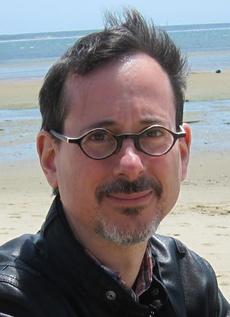
PANEL IX: REGIONAL AND GLOBAL IMPLICATIONS OF RUSSIA'S INVASION OF UKRAINE


VALERIE BROWNE
Valerie Browne graduated from West Virginia University with a double major in English and Russian studies and a minor in political science As an undergraduate, she served as head research assistant for the West Virginia Dialect Project and was an intern Russian translator with Global Wordsmiths’ Language Access Project Her research centers on the sociolinguistics of the post-Soviet space, exploring ways in which conflict and evolving national identities impact language choices in the region Valerie is a two-time recipient of the Critical Language (Russian) Scholarship, participating in programs online and in Bishkek, Kyrgyzstan She spent the 2022-2023 academic year in Krakow, Poland, teaching English and volunteering with Ukrainian refugees as a Fulbright English teaching assistant
"AccessingNationalBelonginginKazakhstan:RussophoneAlmatyntsyandtheKazakhlanguagelearning movementinthewakeofRussia'sfull-scaleinvasionofUkraine" Russia'sfull-scaleinvasionofUkraineonFebruary24,2022reverberatedthroughouttheworld,butithitveryclosetohomeformanyinthepostSovietspaceandwaskeenlyfeltinKazakhstanduetoacomplexinterplayoftheBloodyJanuaryeventsprecedingRussia'sattackonUkraine, previousRussianthreatstoKazakhstan’sterritorialintegrity, andSoviet-coloniallegacies Russia'sinvasionwithinthecontextofKazakhstan's recentpoliticalturmoilwasamomentofprofoundrupture,sparkinga"crisis"ofnationalidentitythatledmanyRussophoneurbanitesinAlmatyto endeavortolearnormasterKazakh Employingdatafrom23semi-structuredinterviewswithlocalKazakhlanguagelearners, teachers, and activistsfrom4Kazakhspeakingclubs, IanalyzethewaysinwhichthiscrisisofidentityledtoanincreasingdemandforKazakhcontentamong RussophoneKazakhcitizensinAlmaty HighlightingtheroleofKazakhspeakingclubsasapowerfullocusforfulfillingthedemandto "feel Kazakh" , IexplorethewaysinwhichRussophoneKazakhcitizens, regardlessoftheirethnicity, areturningtotheKazakhlanguagefornational self-definitioninwaysthatdestabilizepreviouslyexistingethnicandcivicdichotomies(KazakhvsKazakhstani)
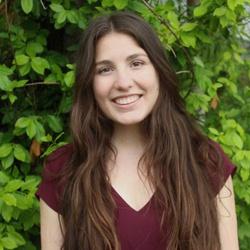


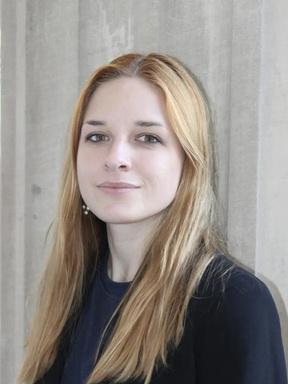
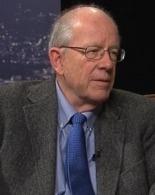
holds an M A in Human Rights from Columbia University and a B A in Law from Taras Shevchenko National University of Kyiv Tanya's journey began when she was displaced from her home in Eastern Ukraine in 2014 due to the Donbas occupation. In 2022, she was in Kyiv during the city's encirclement by Russian forces and witnessed the full-scale invasion of Ukraine Tanya is the founder of Brave Generation, a non-profit organization based in NYC, dedicated to uniting and empowering young Ukrainians for post-war reconstruction Additionally, Tanya serves as a project coordinator at the Boris Nemtsov Foundation for Freedom, where her role involves enhancing democracy promotion workshops, and the Nemtsov forum as well as overseeing the management of the scholarships related to Ukrainian students Also, Tanya manages the “Ideas for Russia” project, exploring Russia in the era of non-transparency and isolation

David R Cameron is a Professor of Political Science at Yale and the Director of the Yale Program in European Union Studies He received his B A from Williams College, an M B A from Dartmouth, an M Sc from the London School of Economics and Political Science, and his Ph.D. from The University of Michigan. He teaches courses on European politics and the European Union
He has written about the impact of trade openness on government and, with respect to the EU, the operation of the European Monetary System, the negotiation of the Treaty on European Union, Economic and Monetary Union, the eurozone crisis, the creation of democratic polities and market-oriented economies in central and eastern Europe, the crisis in Ukraine and, most recently, Brexit


MIKE YORK
Mike York is pursuing an M.A. in European and Russian Studies at Yale University. He earned a B.A. in History from Southwestern University in 2011 and an M A in History from Yale in 2017 Mike retired from the United States Army in 2023, where he deployed in the Infantry, Air Defense Artillery, and as a Civil Affairs officer in Special Operations He served as a civil-military liaison with the United States Agency for International Development (USAID) and has experience coordinating with humanitarian and non-governmental relief organizations. He is interested in the successes and failures of traditional civil society institutions within the context of mass radicalization in interwar Europe, especially the mechanics of societal transformation in Germany Mike is also interested in the reception of refugees and statelessness, as well as violent extremism, the growing appeal of illiberalism, and the war in Ukraine.
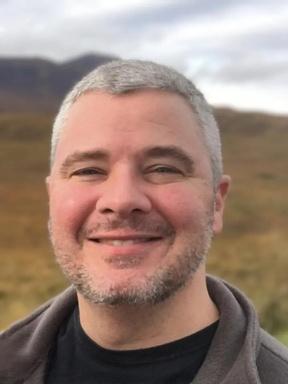
ANDREI KUREICHYK
Andrei Kureichik, a Belarusian dissident and writer in exile known for his opposition to the authoritarian regime in Belarus, will be engaging in a dialogue and discourse centered around Ales Bialiatsky, a prominent Belarusian political prisoner and recipient of the Nobel Peace Prize 2022 Bialiatsky is currently being detained by the regime of President Lukashenko in a facility with the highest levels of security. In many nations, the defense of human rights transcends mere activism and instead presents a formidable obstacle to the oppressive machinery of the totalitarian regime Belarus and Russia serve as illustrative instances In this discussion, the focus will be on individuals who actively advocate for the protection and promotion of human rights. This discussion pertains to the establishment of the human rights center “Viasna” in Belarus by Ales Bialiatsky, as well as the human rights society “Memorial” in Russia, which has also been recognized with a Nobel Prize 2022
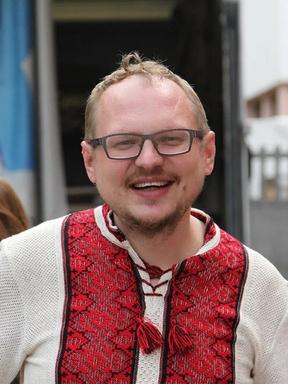




EUROPEAN & EURASIAN
STUDIES EUROPEAN & EURASIAN STUDIES
